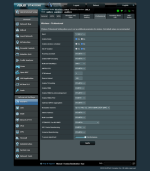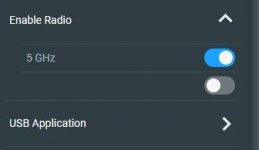OzarkEdge
Part of the Furniture
I recently bought the AX68U , and am experiencing similar issues with 5 GHz devices disconnecting. It works at maximum for 24-36 hours and the disconnects happen. I tried the changes mentioned above, and disabled those settings, but now the issue has become more frequent. Anyone has any other suggestions?
@salsashark , is your router still working without interruption after those changes?
Thanks.
Are you using 160 MHz on DFS channels?
OE


